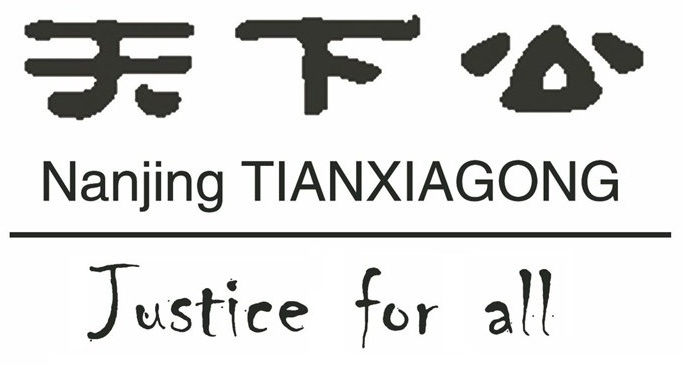
Just two days before World AIDS Day last year, activists from Justice for All (天下公) mailed the 12,621 photos of smiling people we had collected over the previous two months to several government agencies in China. More than just a petition, this was the largest grassroots anti-AIDS-discrimination campaign in China. Our slogan was: “Collecting 10,000 smiles to fight discrimination against people living with HIV/AIDS.”
In China, people living with HIV/AIDS (PLWHA) cannot become government officials. On the one hand, national policies “ensure schooling, employment and heath care” for PLWHA. But in practice, local policies and practices tend to discriminate; government officials usually follow orders from above, even when those orders are not legal.
For the 10,000 Smiles campaign, Justice for All targeted the Chinese Human Resources Department and the Social Insurance Department, because those two departments implemented the discriminatory policies. According to recent statements, those two departments have started negotiations on the issue, but actually amending their policies and those of the Ministry of Health became the number one target for our anti-discrimination advocacy.
Initial signs showed that our campaign was a great success. During World AIDS Day, Premiere Wen Jiabao promised to work hard to eliminate discrimination against PLWHA, and called for every government department to discard discriminatory policies. Though he has said similar things in the past, his strong call for the State Council to reject discriminatory policies was a real first. Moreover, we believe the Premier’s declaration was a response to our long-term advocacy work. In 2010, Justice for All provided legal assistance on two employment discrimination cases, and wrote
policy suggestions to governmental departments. In the same year, the Premier visited the hometown of the prosecutor in the second case. Before Premier Wen made his declaration this year, we were assured that he had heard our voice.
Thinking back to when I posted the first picture of the 10,000 Smiles campaign on Sina Weibo [Chinese Twitter], I was very worried. Originally we aimed to collect 8,000 smiles because I thought we would have 80 days left before World AIDS Day, December 1st, and 8 is a fortunate number in China. Later, I felt there was no big difference between 8,000 and 10,000, and changed the target to 10,000, posting that number on Weibo. However, when I woke up the next day, I realized that there were not even 70 days left before December 1st. A more realistic target would have been 6,800 — yet I had already sent out the call on Weibo and it had been reposted hundreds of times. In China, there is a saying: “Pressure is motivation.”
When we kicked off the campaign I was attending an advocacy training held by UNAIDS [with SECTION27, Korekata AIDS Law Center and Asia Catalyst] in China. I began to take pictures of all of the participants, including translators. I did not need to sell the idea to anyone, since all of us were working against AIDS discrimination. UNAIDS was a great supporter of the idea, and the China Country Coordinator, Mark Stirling, told me, “UNAIDS will also systematically start taking pictures at our anti-discrimination events, and if anyone in UNAIDS doesn’t participate…”, he then winked slyly. Later on, UNAIDS advertised the 10,000 Smiles campaign on their website, gave suggestions for the revision of our slogan, and also gave us a lot of support.
We were delighted to see people’s creative responses. Some university student clubs that had never done AIDS advocacy activities like this one before signed on and got actively involved in anti-discrimination work. One student organization in Hubei sent almost 4,000 pictures. NGOs also worked very hard to promote this action. Aibai, in Chengdu, not only reposted the call for action on Weibo, but also took to the streets to take pictures. By the end, they had collected 3,400 pictures.
Even though the 10,000 Smiles campaign is done, we are still receiving smiling pictures from friends. Looking at those smiling faces, a lot of thoughts come to mind. So many organizations that work for basic human rights collapse before they can make any change. I realized that for four years I accomplished almost nothing in helping PLWHA. For example, in 2010, we called for signatures on an anti-discrimination letter to be mailed to the Ministry of Health, Human Resource
Department, and Social Insurance Department. We spent a lot of energy, but we only got 81 signatures in the end! That was the fewest signatures in my entire working experience. The Smile Campaign was a brave attempt, and the response was also surprising.
I am not the first one to come up with the idea of collecting smile pictures, I am just the first person to apply it in anti-HIV discrimination campaign. In the beginning, it was just a game started on the internet in China. It was later used by private sector businesses to promote products and online games. It was just a commercial meme, but later, gay and lesbian groups ran the “Hello Gay/Lesbian Campaign” and successfully included a photo of celebrity [and Taiwanese TV host] Kevin Tsai showing his support. After that, people with Hepatitis B also carried out a “Smiling Hepatitis B Carriers Campaign.” The famous Chinese activist, Lei Chuang, who has been fighting against discrimination against people with Hepatitis for a long time, took the first picture. Many celebrities (such as sports commentator Huang Jianxiang and Qiu Luwei) also participated in that campaign.
Though no celebrities participated in our grassroots campaign, it seems to have had more influence. An essential reason for this is that people are unwilling to tolerate employment discrimination that violates our national laws, medical knowledge, and basic human rights. It’s regular Chinese people–not only people living with HIV/AIDS—who are expressing their opposition to obvious discrimination.
Yu Fangqiang is a lawyer and the Executive Director of Justice for All.




